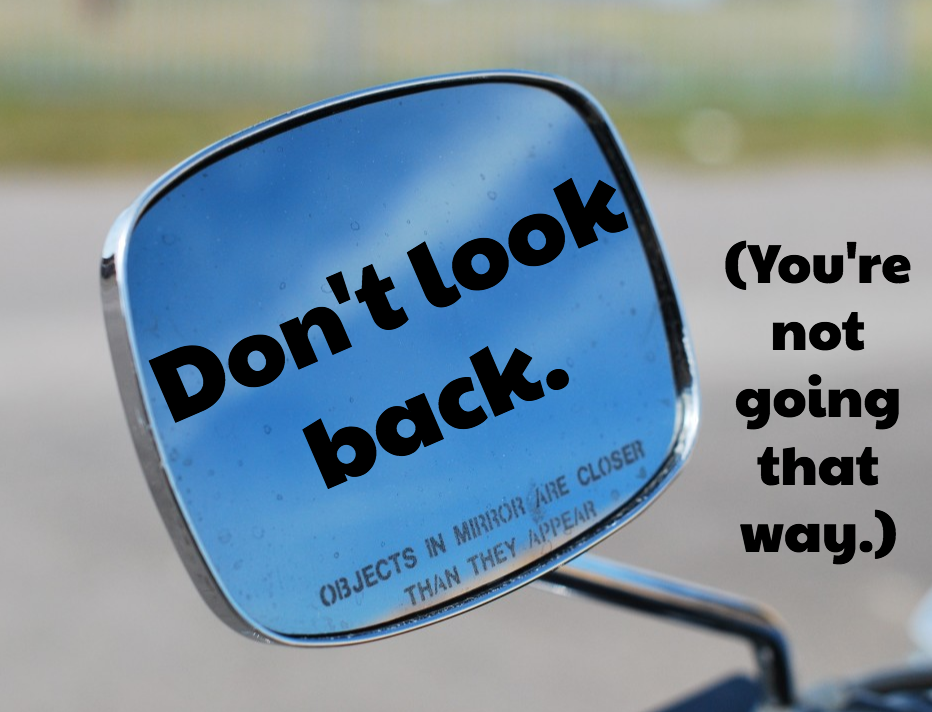Look ahead — “old sayings” vs. clichés
“Don’t look back. (You’re not going that way.)” Or, to translate into the preferred language of the SEO gods: “look ahead.”

Do you read that as wise counsel? As a New Age-y cliché? Or as the worst driving advice ever?
It’s undoubtedly the last. My father the insurance man always instructed us to check the rear view mirrors before turning on the ignition. To be fair, he’d be perfectly fine with “Look ahead” too. He spent his days looking at wrecked cars and deciding how little—er, how much his company ought to pay for them. He knew everything that could happen to you in a car. So look back, look forward, look to your left, to your right—he insisted on all of it.
But in a metaphorical sense, “Don’t look back”—is it wise or trite?
I think the answer is
Yes.
If all you do is toss it into your writing, then it has all the weight of a fortune cookie saying.
But if you use it to make a larger point, if you can connect it to emotion and story—then you’ve got the making of something powerful.
It’s like anything, right? You don’t just drop a quotation into the middle of your work and then never mention it again.
Well, yes. And…? As your reader, why should I care about that? How does it relate to me?
Look ahead
“Don’t look back” resonates for me now because I’m packing. (Argh.) And looking back is pretty much 90% of the packing game, right?
Do I really need to keep my 1980s edition of Trivial Pursuit? What was trivial then is now, like, super-obscure and useless information now. But I remember buying it, carrying it home, being one of my first friends to own it. Nope, Goodwill that sucker.
The handmade ceramic tile with my two-week-old footprints on it—even more trivial than the Trivial Pursuit. Completely useless to every conceivable Goodwill shopper. But my baby footprints! Jury’s still out on that. Oh, I would drive Marie Kondo crazy.
“Don’t Look Back” could make a fine Story Safari for a company in the throes of change. (And when is a company not in the throes of change?) When do you honor the legacy processes? How do you implement new ones without alienating half your workforce? Well, don’t look back; you’re not going that way. So what’s next.
In that context, “Don’t look back”—or, pace, gods of SEO—”look ahead” isn’t a cliché at all. It’s a great hook for a story.
Now, excuse me. I’ve got more packing to do.